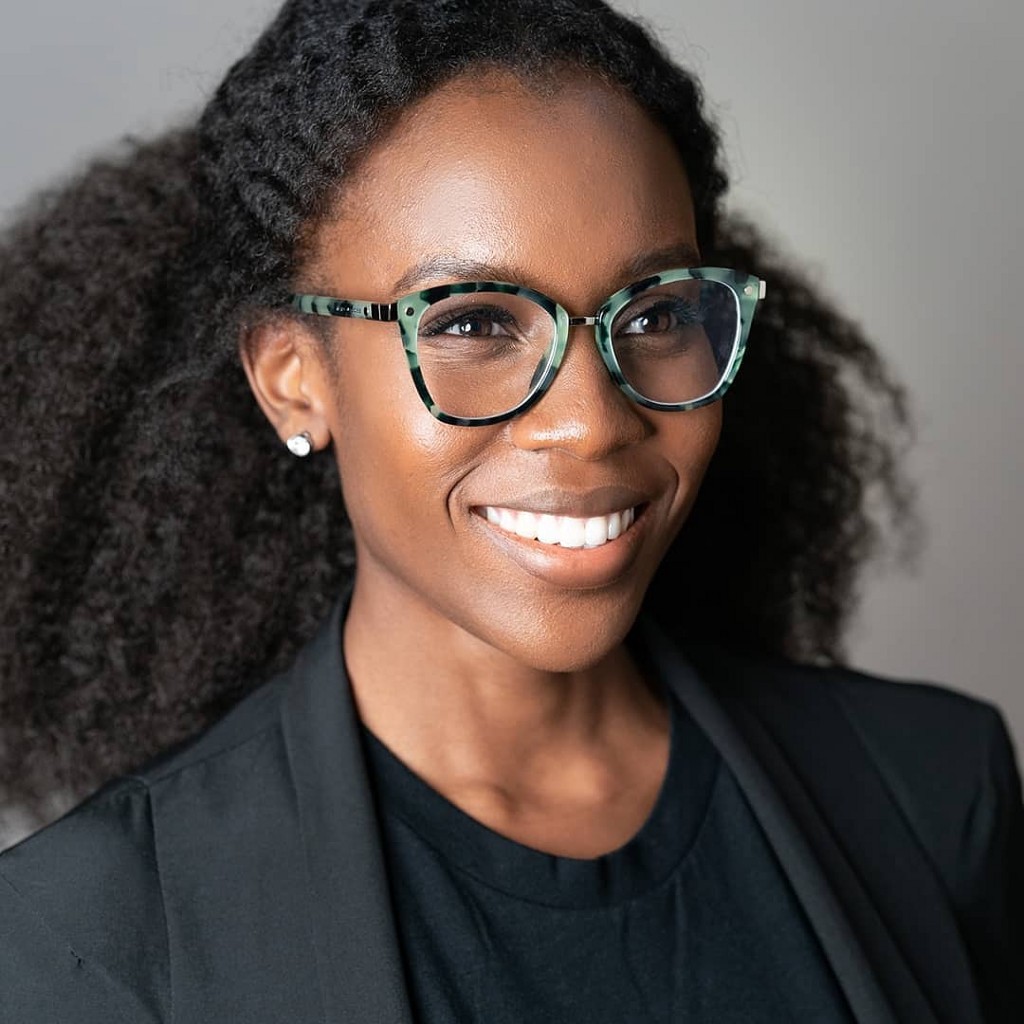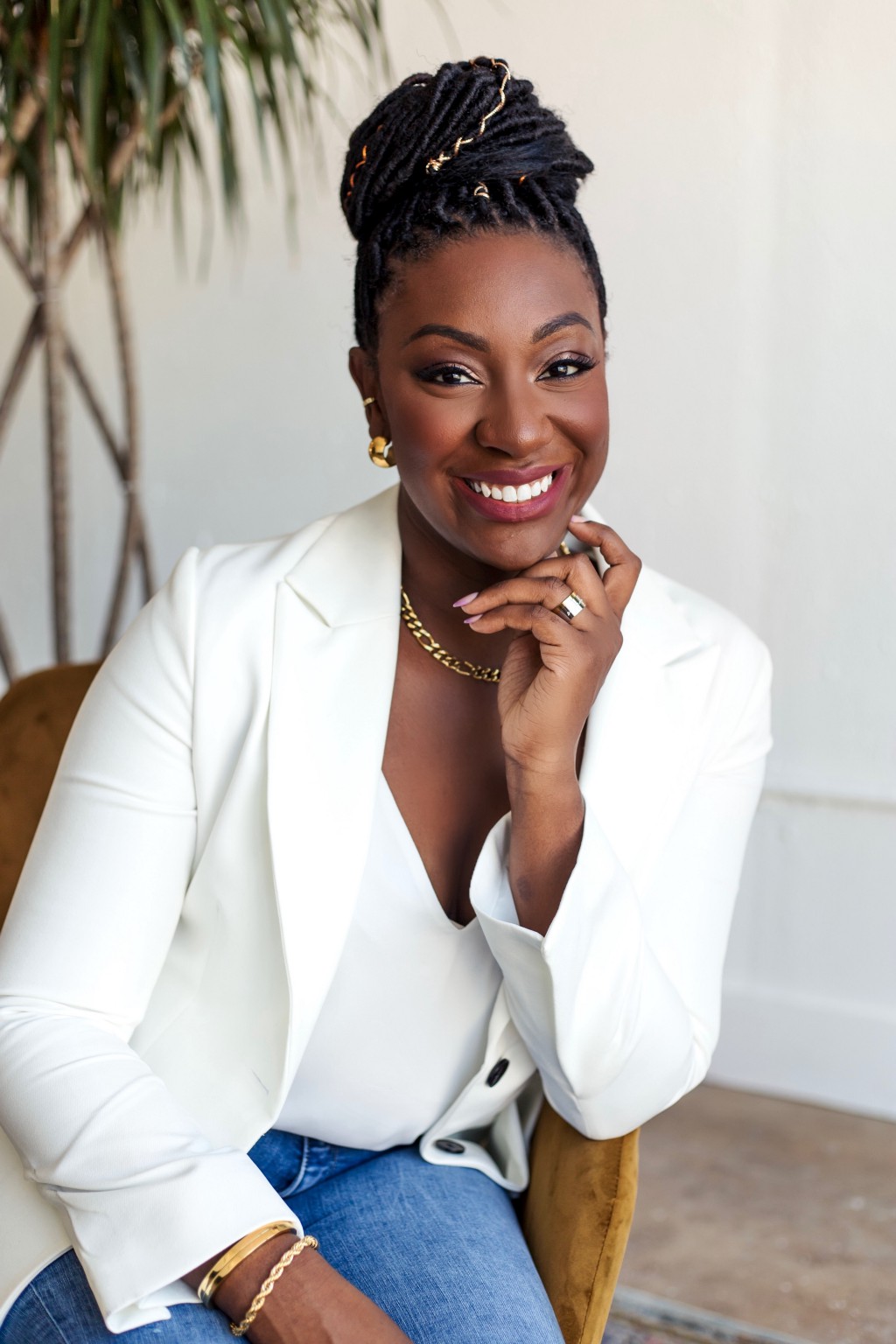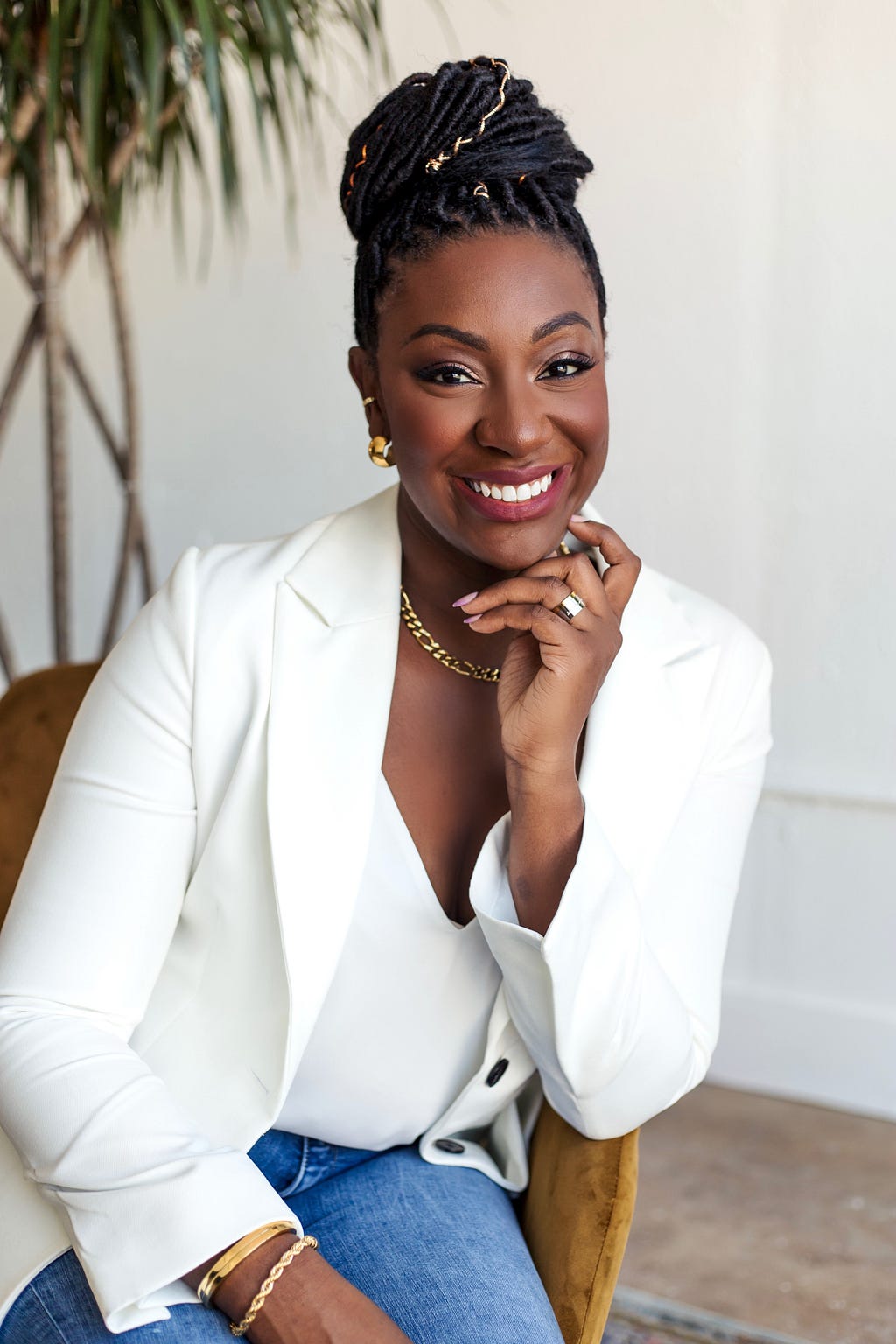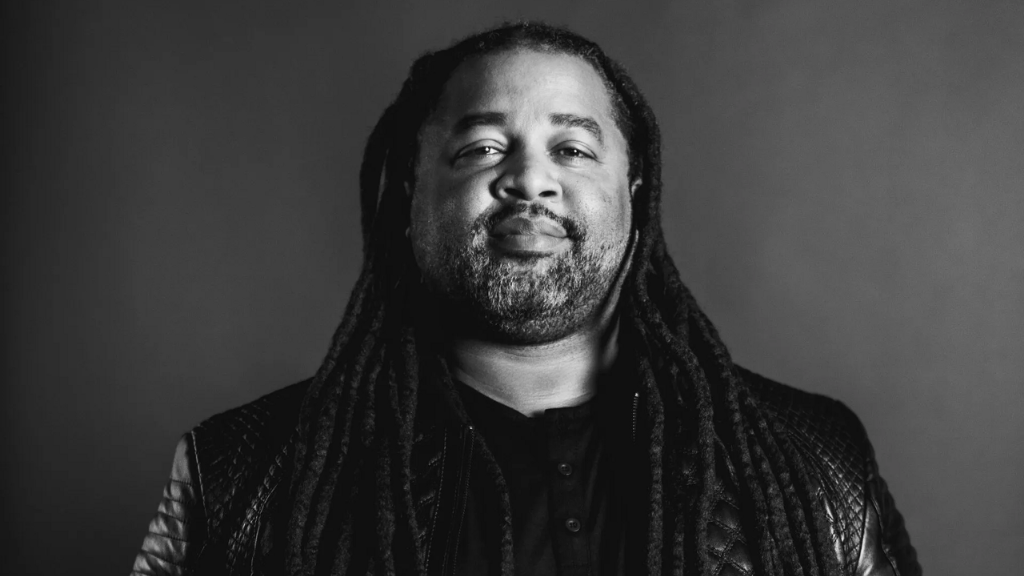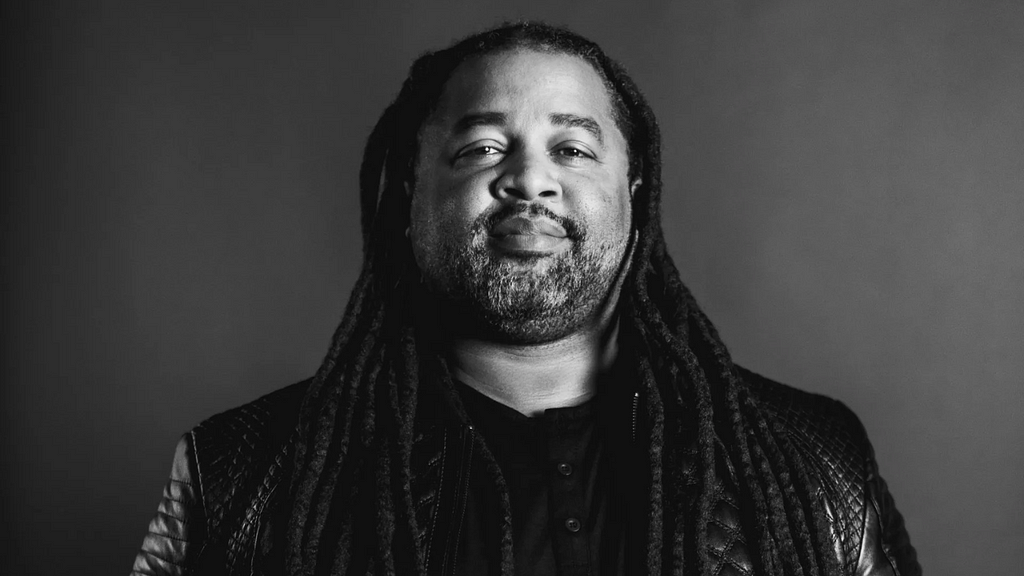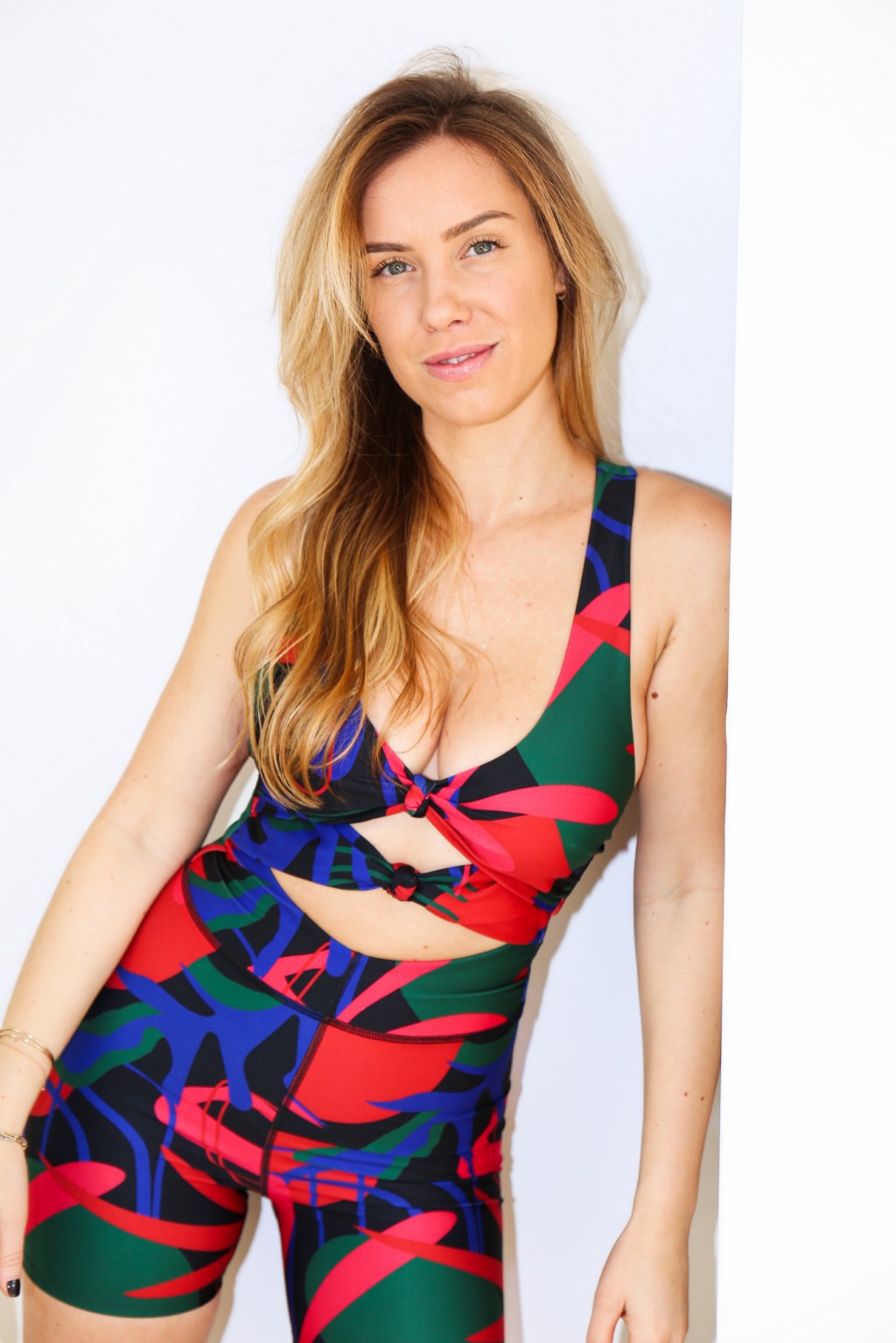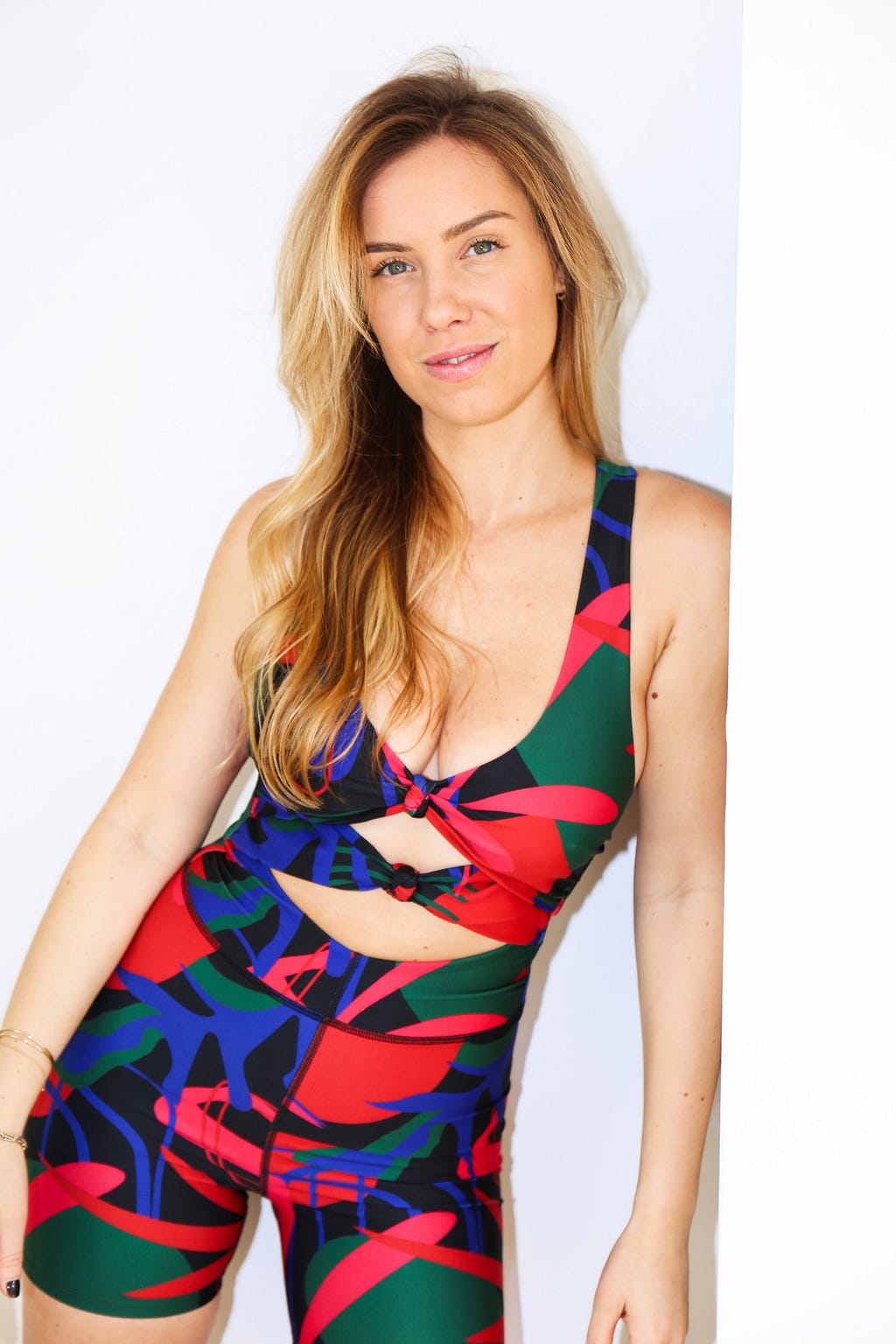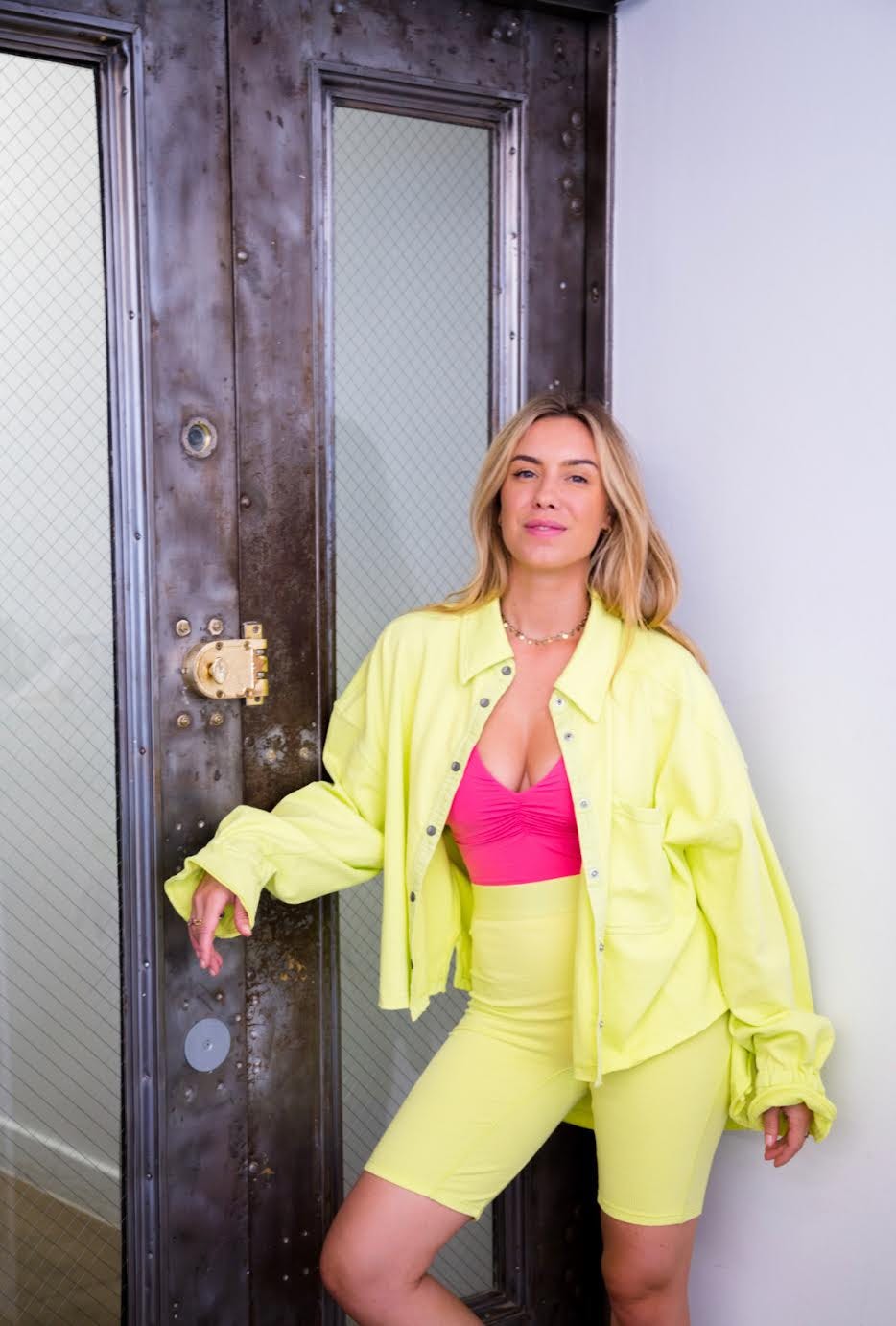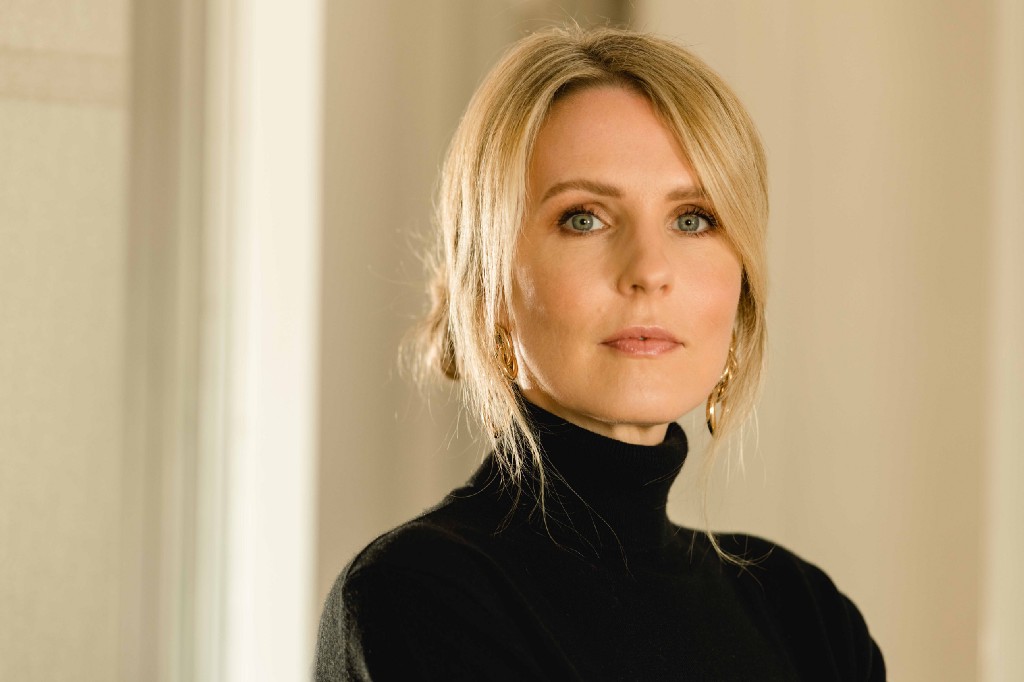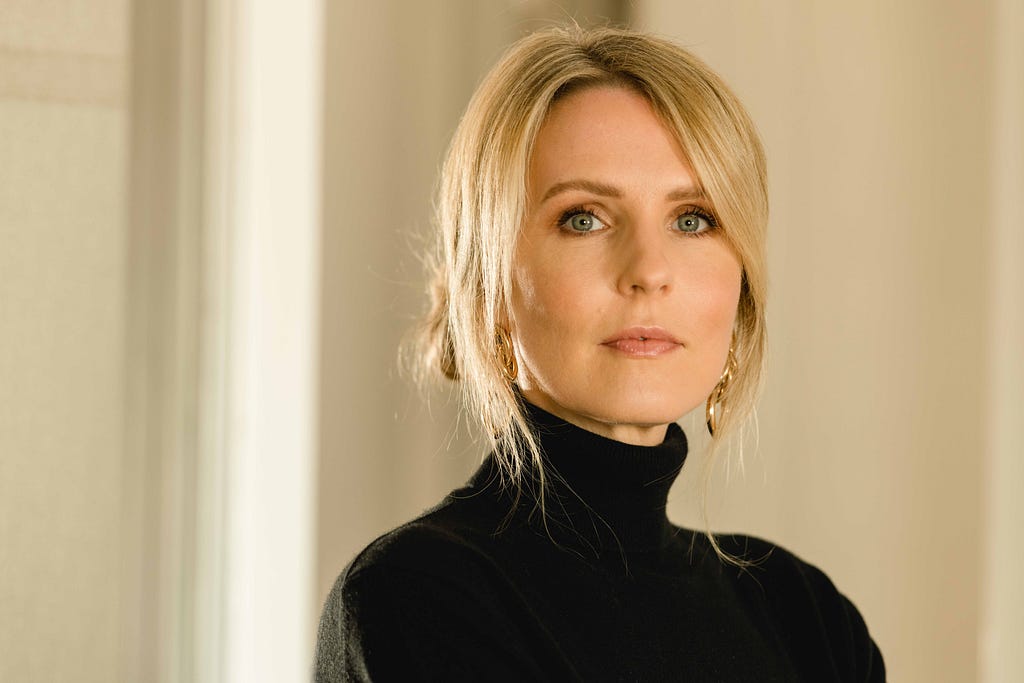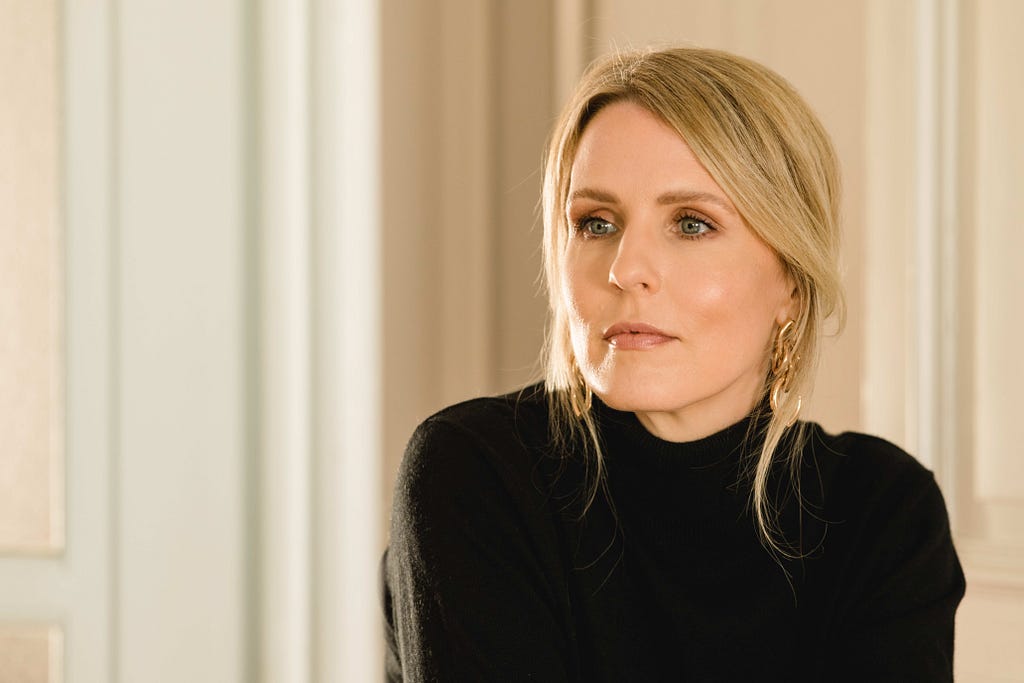An Interview With Candice Georgiadis

I want to see a difference in how immigrants are treated, especially those of color who are darker skinned. We had an entire crusade about Ukrainian immigrants, but no one talked about the Haitian immigrants who were whipped at the border, pushed back into the water and told to “go back to where you came from.” I’m not saying Ukrainian immigrants don’t deserve to be welcomed with open arms, it’s just that Black immigrants should be treated as well as they were.
As a part of our series about women who are shaking things up in their industry, I had the pleasure of interviewing Diana Muturia.
After dropping out of college, Diana didn’t want to waste her smarts even at her most humble moments. As the sort-of cleaner in her neighborhood, she learned the struggles of trying to create rapport, always asking for referrals and negotiating her prices, etc. She also met other small cleaning providers especially in the Black and Hispanic communities and got to listen to their unique stories. That inspired her to create Clyn, an app that is specifically made for people like them and herself.
Her biggest reason, however, is to change the perception of how home-service providers and janitorial jobs are looked upon. “We often see that cleaner or janitor in the shadows always cleaning up around the house or office spaces, but don’t hear of them,” she says. “Maybe an occasional “Hello” or “Hola”, but we don’t realize how much effort they put to make sure our environment is clean and clear so we can focus on our daily tasks.
Thank you so much for doing this with us! Before we dig in, our readers would like to get to know you a bit more. Can you tell us a bit about your “backstory”? What led you to this particular career path?
I’m from Kenya and came to the USA when I was 18 years old, to study math and mechanical engineering. During that time studying, buying $200 math textbooks consistently led to real sticker-shock. I had to start cleaning people’s houses, do pet-sitting and other small jobs, just to cover the cost of those textbooks. Due to my heavy accent, I wasn’t able to get typical retail or service jobs, leading me to small jobs. After dropping out of college during my last year due to financial issues, I found myself cleaning houses full time to put food on the table. I looked around and saw other cleaners who told me of their lives and how they came to their present conditions. I saw many similarities between their experiences and my own, as I spoke to many BIPOC and immigrant folks who just wanted a fighting chance to do well in life, and live the American Dream. I said, “I’m not going to waste my smarts, I’m going to do something about this.” That’s how Clyn came about.
Clyn connects homes to home-service providers, the ones who hustle everyday to put food on the table. If you don’t have the resources for a marketing team, for an accounting team, for a finance team, Clyn says “Listen, do what you need to do in terms of cleaning the homes. We’ll get that situated for you.” I think it’s fair to say that Clyn’s the Microsoft of the cleaning industry, because the industry is so mismanaged and fragmented, while Clyn is a one-stop product which helps home-service providers get jobs and manage their business at the same time.
Can you tell our readers what it is about the work you’re doing that’s disruptive?
There are many competitors trying to make an app and just throwing it into the market, which I think is just a lazy thing to do in 2022. We have to make sure we are taking care of cleaners, because if we do, then they take care of the household. The stories I hear about cleaners not being covered by health insurance are insane to me. Clyn is passionate about these workers getting the necessary insurance coverage. We also help cleaners dictate their prices, which is especially important in this economy. There’s so many things Clyn looks at, especially as I’m a cleaner myself, so I understand what cleaners go through. So I say, “We’re going to change that. We’re going to bring the cleaning industry that has been very traditional and not involved, and bring it up to the standard that it needs to be at today.”
I feel that for other businesses, they always have to deal with old-school software, and use multiple apps to effectively run things. While a business owner can often be at their computer, a cleaner is mostly in someone else’s house, where handling multiple apps can be a serious challenge. Making the transition between different elements of running a home-service business as smooth as possible, lets the cleaners do their job well.
Can you share a story about the funniest mistake you made when you were first starting? Can you tell us what lesson you learned from that?
I remember when I was looking to get into the cleaning business for the very first time, in a Phoenix neighborhood. I was so broke that I couldn’t make a business card, so I ripped off a piece of paper and said if you need a cleaning lady, please call this number. I jammed a paper containing the same number into many doors. Then an old lady named Patty called me and gave me an entire 45 minute-long interview: asking me how I’d handle the cleaning of various things in her house. I was so happy after she finally gave me the job. Patty gave me something impactful in my life as she connected me to people in this Phoenix neighborhood. If there’s anything that needed to be done, I would get a call, and this would evolve over time, leading to me gaining a terrific network of people, which allowed me to understand how creating business and trust with customers is so important.
We all need a little help along the journey. Who have been some of your mentors? Can you share a story about how they made an impact?
The first lead investor, the Logitech CEO, Bracken Darell, is a crucial mentor. I met him when I asked him a candid question at an online conference he was presenting at, about tech businesses, and immediately he knew I was a diamond in the rough. He was clear that it was crucial for me to not give up, and to remember I have a really good thing going for me. He believed I would be the best person in the home-service industry to disrupt it, as I have the cleaning experience, the technology knowledge and the business experience, whereas most founders in the industry have only one of these knowledge points. This faith really knocked out the imposter syndrome I was dealing with once and for all. It was such a short way of him saying this, but it just takes one contact, one moment, to unlock better things in your life.
Darrell supported Clyn very early on in its existence, so he didn’t initially send a mind-boggling amount of cash. Darrell sent just $10,000 USD to spend on what I deemed necessary to help grow Clyn, by targeting measurable goals. He was clear that I needed to make sure to put Clyn in the market however it could be done. This was such valuable advice. When a Fortune 500 CEO says you have something there and puts in the investment to back their words up, it really fires you up.
In today’s parlance, being disruptive is usually a positive adjective. But is disrupting always good? When do we say the converse, that a system or structure has ‘withstood the test of time’? Can you articulate to our readers when disrupting an industry is positive, and when disrupting an industry is ‘not so positive’? Can you share some examples of what you mean?
Change is always very uncomfortable, but so necessary. If we lead as business owners lead in compassion, with our humanity, then the disruptions we cause bring society forward. There’s a difference between disrupting just to make a name for yourself, compared to one motivated by the knowledge that something has to change to improve society. In the home-service industry, many cleaners are depending on themselves, and can’t come together as a community, so the Clyn app disrupted the industry and allowed for communities to be built, reducing the isolation that leaves them vulnerable. Enhancing the skills of the cleaner is so important, because you’re building up not just the individual cleaner, but also building their business whose revenue goes directly to the cleaner’s household. If disruption and change are looked at in the lense of compassion and what will help humanity move forward, then that disruption is necessary.
Eventually, I want to build Clyn to a point where it can impact immigration reform. I’d love to see a system where cleaners’ work is logged and they can earn their way into citizenship, earn their first work permit, and eventually get licensing for a business. My personal experience with struggling for a fair chance means I am determined to further disrupt the industry and anti-immigrant narratives that exist in the USA. Immigrants create so many jobs (18% of successful businesses have been started by immigrants, despite them making up only 6% of the population), so if you want to see more jobs, give immigrants a fighting chance.
Can you share 3 of the best words of advice you’ve gotten along your journey? Please give a story or example for each.
The one that changed my perspective was, when someone said “you’re perfect for this role because you are black, a woman, and an immigrant.” I said “what does that mean?” They said, there’s so many opportunities now just meant for you. It changed my perspective, where even though I go through so many challenges as a Black immigrant woman, I started to look at where I could go to work where I was valued. Previously I had been willing to just accept a seat at the table with a limited role, or a seat near the table. If I want to win, I need to go where I’m valued, I won’t waste my time at a place where I’m seen as a token, as someone who is otherwise useless. I deserve to be valued, I know that.
I’ve always felt that I wasn’t smart enough because I dropped out of college, but my big brother will constantly remind me that I am made for this, and it makes a big difference for my confidence. Having even one person supporting you makes a difference.
We are sure you aren’t done. How are you going to shake things up next?
We are in the middle of a three-month sprint, and we have a new version of the Clyn application coming out. We’re really excited about that because now you’ll be able to add roommates in the app. Since the pandemic started, the statistics have changed drastically, with 30% of Americans now living with roommates, whether this is with family, friends or colleagues. The biggest issue between roommates is the standard of cleanliness, so we say if that’s the case and you want to save on money while still having your roommate around, go on Clyn and add groups so you can split the payments to the cleaner. We’re excited to have the application’s update go live in July.
Multi-property management is going to soon be included in the app, so if your family members aren’t tech savvy, you can manage the process of getting their house cleaned just on Clyn.
In your opinion, what are the biggest challenges faced by ‘women disruptors’ that aren’t typically faced by their male counterparts?
Funding is a big one. As women, we have to constantly prove that we are worth the investor paycheque, more than our male counterparts. Ironically, the majority of businesses run by women are more successful than those run by men. Kevin O’Leary from Shark Tank said “I invest in more businesses run by women than those run by men. I know the statistics and I’m going to follow them. I put my bias aside.” There needs to be a conversation about the challenges women face to get funding for their businesses.
Do you have a book/podcast/talk that’s had a deep impact on your thinking? Can you share a story with us?
That book is called the “Phoenix Project”. It’s more technical than anything, but I’d recommend it for any woman trying to get into the tech business, and for those who’ve failed or faced a challenge detrimental to their tech business. Read that book, and read it twice.
The first time you read a book, you find something in the book, the second time you read it, you find something within yourself. I had my entire team at Clyn read it. I said, take a two-week break, but don’t come back to work if you haven’t finished the “Phoenix Project”. When the team came back, they said “Diana I’m blown away, I can’t believe that this issue we were having is because of this and we can resolve it.” Ever since they read the book, the team has been moving so much faster because they have the full picture of it. As leaders we don’t like to tell employees that this is what we are doing as a company, we like to tell our employees to just put their heads down and work. That’s not healthy, if you start treating people like that then they’ll feel that they are just a number. To actually get things done, you have to involve your team in everything, so for example, you tell them what your goals are to get the company to this level of revenue by a certain time.
If you have a chat with an investor that doesn’t go well, just tell your employees the truth. It does make a difference in how they work because they work better if they know they’re a part of something that’s massive and they need to do their part, as part of a team that’s actually disrupting the industry. If you put things to the side, away from employees, they’ll be able to notice over time, and that will impact the pace and quality of the work they get done.
You are a person of great influence. If you could inspire a movement that would bring the most amount of good to the most amount of people, what would that be? You never know what your idea can trigger. 🙂
My biggest goal is to go back to Kenya and build a city. Kenya is a very hot spot for tech, but we can do better. It’s crucial to eventually build a really strong structure around the tech disruptors in Africa.
In the USA, I’d like to see immigrants to get more positive results, to have a fair fighting chance. Is it going to be difficult, yes, but it is worth a try. From the time when I could sense college was slipping away from me, and I was scrambling to do what I could to finish my degree, I remember a student advisor at my college. She really treated some immigrants well, but when it’s my turn to ask for help, she was like “ugh what do you want.” You could see that she favored white international students over Black international students. In the last encounter we had, she was actually yelling on the phone and told me to “go back to my country.” I was just wondering what I did so wrong, I was just wondering how I hadn’t qualified for any scholarships or grants. The way white immigrants are treated compared to black immigrants is insanely different. If you look at economies of scale, that’s why you see many Black immigrants not doing well, since they are constantly cut down.
I was recently talking to a female mentor of mine, who was assigned to me after I got into Venture Devils, a business accelerator here in the Valley, and I told her my story. She was fuming when she heard what I had been forced to go through to get to this point. She said, “Your story is so inspiring but unnecessary. You should’ve been able to receive the necessary help to finish your engineering degree and have been able to keep things moving. You shouldn’t have had to fight for all these years to get a seat at the table.”
I want to see a difference in how immigrants are treated, especially those of color who are darker skinned. We had an entire crusade about Ukrainian immigrants, but no one talked about the Haitian immigrants who were whipped at the border, pushed back into the water and told to “go back to where you came from.” I’m not saying Ukrainian immigrants don’t deserve to be welcomed with open arms, it’s just that Black immigrants should be treated as well as they were.
How can our readers follow you online?
Twitter: https://twitter.com/DianaMuturia
Facebook: https://www.facebook.com/dianamuturia
Linkedin: https://www.linkedin.com/in/dianamuturia/
This was very inspiring. Thank you so much for joining us!
Female Disruptors: Diana Muturia Of Clyn On The Three Things You Need To Shake Up Your Industry was originally published in Authority Magazine on Medium, where people are continuing the conversation by highlighting and responding to this story.


